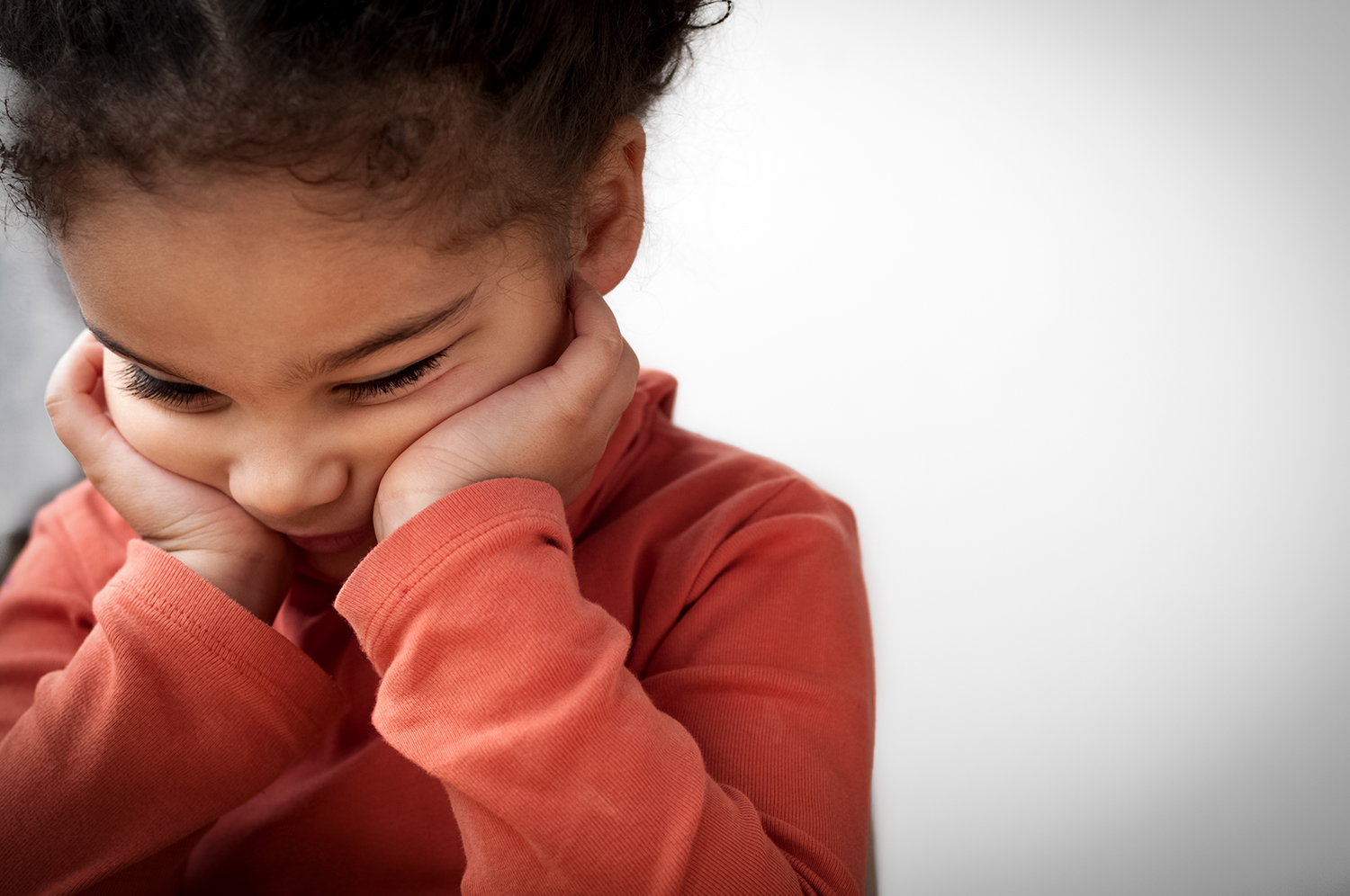Anxiety can be a normal part of childhood and adolescence, but it can also be overwhelming and debilitating for some children. As a parent, it can be heartbreaking to see your child struggling with anxious thoughts and feelings. You may feel helpless or unsure of what to do to support them. However, there are effective strategies and techniques that can help your child manage anxiety and build resilience.
One of the most important things you can do as a parent is to educate yourself about anxiety and its impact on your child’s well-being. Understanding the symptoms and triggers of anxiety can help you identify when your child is struggling and provide appropriate support. Some common symptoms of anxiety in children include excessive worrying, restlessness, irritability, sleep disturbances, and physical symptoms like headaches or stomachaches.
Once you’ve recognized that your child is experiencing anxiety, there are many practical steps you can take to help them cope. For example, you can teach them relaxation techniques like deep breathing or progressive muscle relaxation, which can help them calm down when they feel overwhelmed. You can also help your child develop coping skills like problem-solving or positive self-talk, which can boost their confidence and resilience.
In this article, we’ll explore some expert advice and practical tips for helping your child manage anxiety. From creating a supportive environment at home to seeking professional help when needed, we’ll provide you with the tools and resources you need to support your child’s emotional well-being. By working together, we can help your child develop the skills and confidence they need to manage anxiety and thrive.
Are you looking for practical strategies to help your child manage anxiety? This expert advice can provide you with the tools and resources you need to support your child’s emotional well-being. From identifying the symptoms and triggers of anxiety to teaching relaxation techniques and coping skills, this article explores the most effective ways to help your child thrive.
You’ll discover how to create a supportive environment at home, communicate effectively with your child about their emotions, and seek professional help when needed. With our expert tips and resources, you can help your child build resilience and confidence in the face of anxiety. Whether your child is dealing with generalized anxiety, social anxiety, or specific phobias, these techniques can help them manage their emotions and lead a happier, healthier life. So, don’t wait – learn how to support your child’s emotional well-being today.
What are some common signs and symptoms of anxiety in children?

Anxiety is a normal and common part of childhood, but it can become a problem when it interferes with a child’s daily life. Some common signs and symptoms of anxiety in children include:
Excessive worrying: Children with anxiety may worry about a wide range of things, including school, friends, family, or their own safety. They may ask for reassurance frequently and have a hard time letting go of worries.
Restlessness: Anxiety can make children feel restless or agitated. They may have trouble sitting still or focusing on tasks.
Irritability: Children with anxiety may become easily frustrated, irritable, or angry. They may snap at others or have frequent outbursts.
Sleep disturbances: Anxiety can make it hard for children to fall asleep or stay asleep. They may have nightmares or wake up frequently during the night.
Physical symptoms: Anxiety can also cause physical symptoms like headaches, stomachaches, muscle tension, or fatigue.
Recognizing these symptoms can be the first step in helping your child manage their anxiety. By understanding the signs and triggers of anxiety, you can provide appropriate support and help your child develop coping skills.
How can I help my child manage their anxiety?
If you notice that your child is experiencing symptoms of anxiety, there are many practical steps you can take to help them cope. Some strategies to consider include:
Teaching relaxation techniques: Relaxation techniques like deep breathing, progressive muscle relaxation, or guided imagery can help your child calm down when they feel overwhelmed. Encourage your child to practice these techniques regularly, even when they’re not feeling anxious.
Developing coping skills: Coping skills like problem-solving, positive self-talk, or distraction can help your child manage anxious thoughts and feelings. Encourage your child to practice these skills regularly and praise them for their efforts.
Creating a supportive environment: Children with anxiety need a safe and supportive environment where they feel comfortable expressing their emotions. Listen to your child, validate their feelings, and offer reassurance when needed. Avoid criticizing or belittling their fears, and instead focus on helping them find solutions.
Communicating effectively: Effective communication is key when helping your child manage anxiety. Encourage your child to express their emotions and listen actively when they do. Use open-ended questions to prompt discussion, and avoid giving unsolicited advice.
Seeking professional help: If your child’s anxiety is severe or interfering with their daily life, it may be time to seek professional help. A qualified therapist or counselor can work with your child to develop personalized strategies to manage their anxiety and improve their emotional well-being.
Remember that managing anxiety is a process, and it may take time and effort to find what works best for your child. Be patient, offer encouragement, and celebrate progress along the way.
When should I seek professional help for my child’s anxiety?

While some anxiety is normal and can be managed with practical strategies, some children may require professional help to manage their symptoms. Here are some signs that it may be time to seek professional help for your child’s anxiety:
The anxiety is interfering with their daily life: If your child’s anxiety is causing them to avoid normal activities or impacting their ability to function at school or home, it may be time to seek help.
- The anxiety is causing significant distress: If your child is experiencing intense fear, panic attacks, or other severe symptoms, it may be time to seek help.
- Your child is experiencing physical symptoms: If your child is experiencing physical symptoms like headaches, stomachaches, or fatigue, it may be a sign that their anxiety is more severe than you realize.
- Your child’s anxiety is affecting their sleep: If your child is having trouble sleeping due to anxiety, it may be a sign that their anxiety is more severe than you realize.
- Your child’s anxiety has persisted for several weeks or months: If your child’s anxiety has been present for an extended period of time and is not improving, it may be time to seek professional help.
- Your child is experiencing other mental health issues: If your child is experiencing other mental health issues like depression, obsessive-compulsive disorder (OCD), or attention-deficit/hyperactivity disorder (ADHD), it may be time to seek professional help to address their anxiety as well.
If you’re unsure whether your child’s anxiety requires professional help, it’s always a good idea to consult with your child’s healthcare provider or a qualified mental health professional. They can help you determine the best course of action and provide guidance and support as needed.
It’s important to remember that seeking professional help for your child’s anxiety is not a sign of weakness or failure as a parent. It takes courage and strength to recognize when your child needs additional support and to take action to help them. With the right strategies and support, your child can learn to manage their anxiety and thrive.
How can I talk to my child about their anxiety?
Talking to your child about their anxiety can be challenging, but it’s an important step in helping them manage their symptoms. Here are some tips for having productive conversations with your child about their anxiety:
- Choose a good time and place: Choose a time and place where you and your child can talk privately and without distractions.
Validate their feelings: Let your child know that their feelings are normal and understandable. Avoid minimizing their concerns or telling them to “just relax.” - Encourage them to express themselves: Encourage your child to express their thoughts and feelings about their anxiety. Listen actively and avoid interrupting.
- Offer reassurance: Let your child know that you’re there for them and that you’ll help them find ways to manage their anxiety.
- Collaborate on a plan: Work together with your child to develop a plan for managing their anxiety. Encourage your child to come up with their own strategies and offer suggestions as needed.
How can I help my child manage their anxiety in school?
Anxiety can be especially challenging for children in school, where they may face academic and social pressures. Here are some strategies to help your child manage their anxiety in school:
- Communicate with their teacher: Talk to your child’s teacher about their anxiety and any accommodations or support they may need in the classroom.
- Teach coping skills: Teach your child coping skills like deep breathing or positive self-talk that they can use during the school day.
- Encourage breaks: Encourage your child to take breaks throughout the school day to rest, stretch, or practice relaxation techniques.
- Create a calming kit: Create a calming kit for your child to bring to school, filled with items like stress balls, fidget toys, or calming scents.
- Provide positive reinforcement: Praise your child for their efforts to manage their anxiety and celebrate their successes.
What are some self-care strategies for parents of anxious children?

Parenting an anxious child can be stressful and challenging, so it’s important for parents to prioritize their own self-care. Here are some self-care strategies to consider:
- Practice relaxation techniques: Incorporate relaxation techniques like deep breathing, meditation, or yoga into your daily routine.
- Seek support: Reach out to friends, family, or a support group for parents of anxious children.
- Take breaks: Take regular breaks from parenting responsibilities to recharge and focus on your own needs.
- Set realistic expectations: Set realistic expectations for yourself and your child, and celebrate small successes along the way.
- Prioritize your own mental health: Take care of your own mental health by seeking therapy or counseling if needed.
Conclusion:
Helping your child manage anxiety is an ongoing process that requires patience, understanding, and effort. By recognizing the signs and symptoms of anxiety, providing practical support and coping strategies, and seeking professional help when needed, you can help your child manage their anxiety and thrive. Remember to prioritize your own self-care as well, and celebrate progress along the way.

